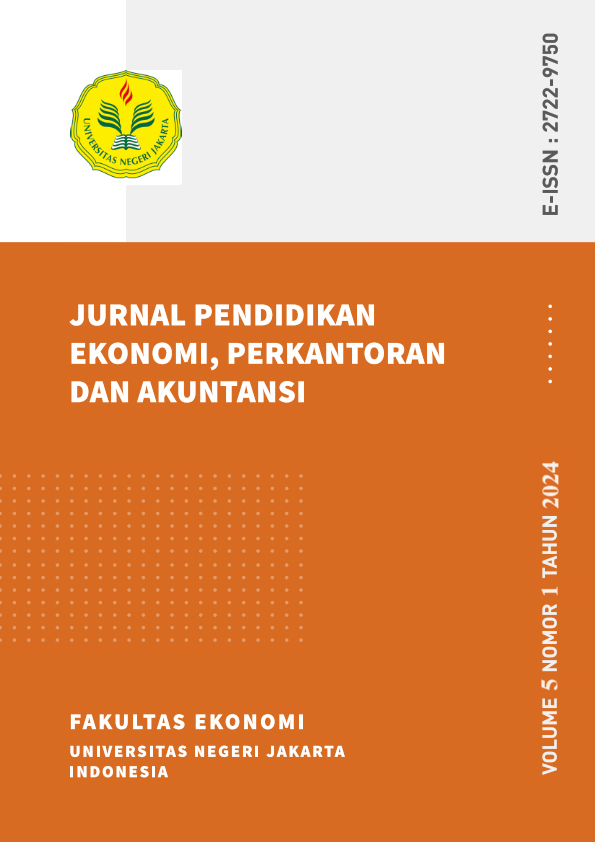DEVELOPMENT OF FLIPBOOK BASED ELECTRONIC MODULES ON BUSINESS AND LOGISTICS SERVICE ELEMENTS AT VOCATIONAL SCHOOLS
DOI:
https://doi.org/10.21009/jpepa.0501.03Keywords:
Business and logistics services, E-module, Flipbook, Learning mediaAbstract
The purpose of this study is to ascertain whether or not the creation of electronic modules (e-modules) based on flipbooks that focus on aspects of logistics and business operations is a viable option. This research uses the Research and Development (R&D) method with the ADDIE (Analyze, Design, Development, Implementation, and Evaluation) development model. The subjects of this review comprised of three validators (material specialists, etymologists, and media specialists), and 71 understudies of class X Office Management and Business Services (MPLB). Observation and a questionnaire were used for data collection. Validation and practicality tests were the methods of data analysis used. Material experts passed the validation test with a score of 98%, which was considered very feasible; language experts passed with a score of 88%, which was considered very feasible; and media experts passed with a score of 80%, which was considered very feasible. During the practicality test that 71 students in class X took, MPLB went through three stages of trials: one-on-one evaluation, small group trials, and large group trials. The aftereffects of this innovative work demonstrate that the Flipbook-Put together E-module with respect to Business and Operations Administration Components is pronounced truly achievable and reasonable for use in learning.









